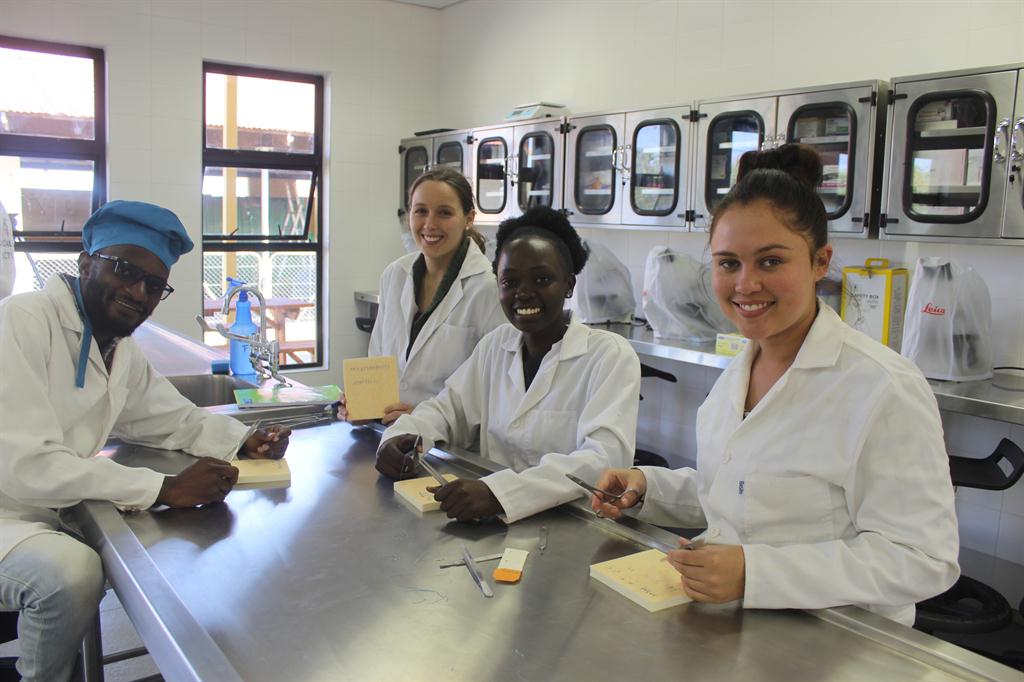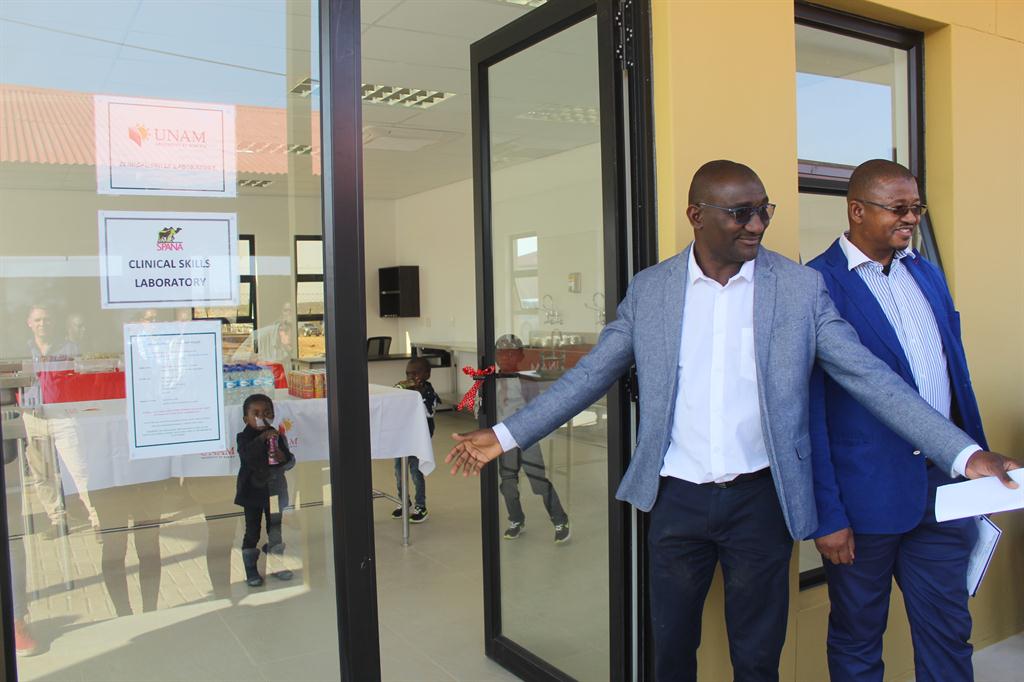Vet students get practical lab
Developing competence in clinical and surgical skills is essential - Gideon
Justicia ShipenaThe students, who are from Botswana, the Democratic Republic of Congo (DRC), South Africa, Zambia, Zimbabwe and Namibia are the first-ever 18 veterinarians being trained in Namibia.
The school had its first intake in 2014 and will be ready to embark on clinical rotations for sixth-year students in 2019.
The School of Veterinary Medicine in the Faculty of Agriculture and Natural Resources at the University of Namibia (Unam) Neudamm Campus every year takes in a maximum of 25 first-year students for the six-year bachelor degree programme.
During the opening, the fifth-year students were able to do surgical practical in a so-called wet lab environment on animal cadavers.
According to Unam pro-vice-chancellor, Frednard Gideon, developing competence in clinical and surgical skills is an essential part of veterinary training.
The students are expected by the World Organisation of Animal Health to have “day one competence”. In other words, they are expected to deliver a proficient service to the public from the first day after their graduation.
Gideon said the veterinary school has developed a list of over 200 competencies endorsed by the Namibian Veterinary Council.
“A clinical logbook has been derived from this document containing all the clinical and surgical components of the list, from collecting blood to performing complex surgical procedures. The university expects that by the end of the sixth year, each student will submit a complete and signed logbook as a prerequisite for graduation.”
Gideon said there are a number of challenges encountered when teaching veterinary students to master competencies.
However, to address these challenges in recent years there has been an increase in the number of veterinary clinical skills laboratories and wet labs, which provide well-equipped venues where students can practice a range of clinical skills.
“In these labs, students use models and cadavers to complement learning opportunities in a secure environment, with assistance from clinicians and enough time to master each activity.”
Freddy Mosimane, a fifth-year student, said he is very excited to use the facilities as they have been waiting for such opportunities ever since their first year.
He said they are glad to practice their skills in the laboratories, in order to be ready for the corporate world.





Comments
My Zone
No comments have been left on this article